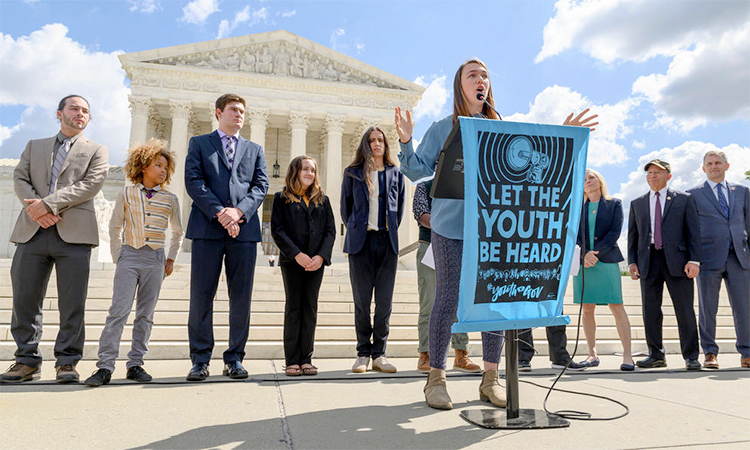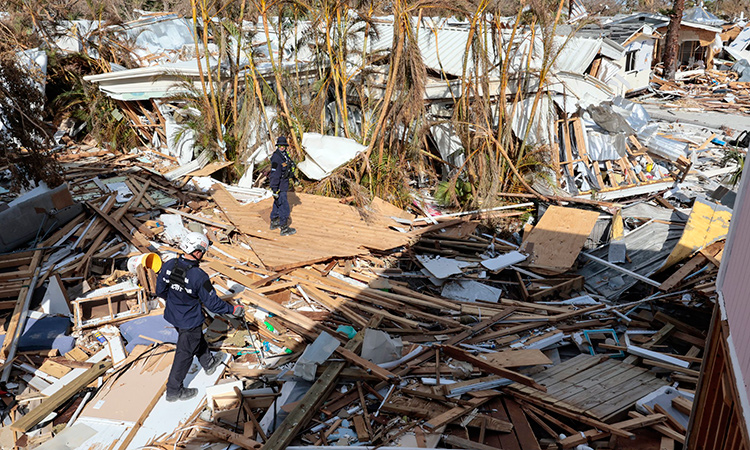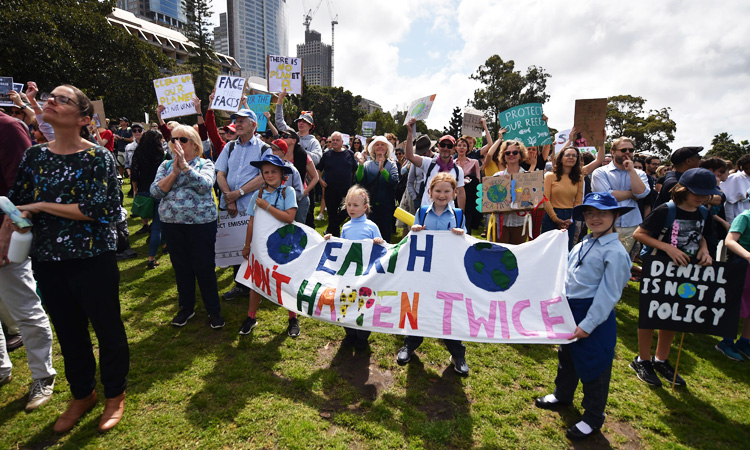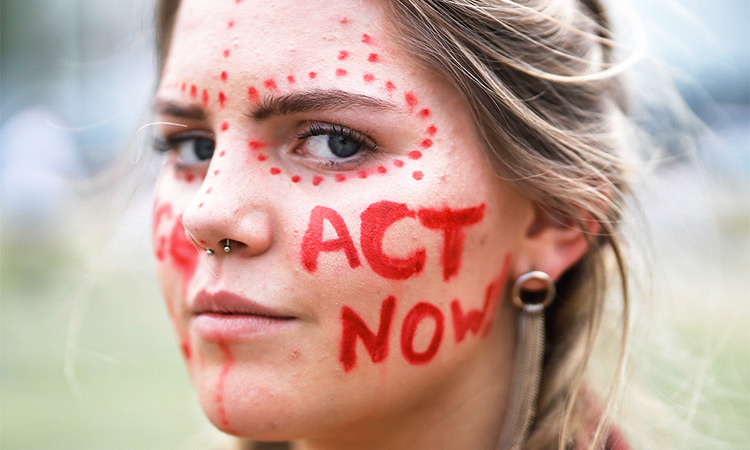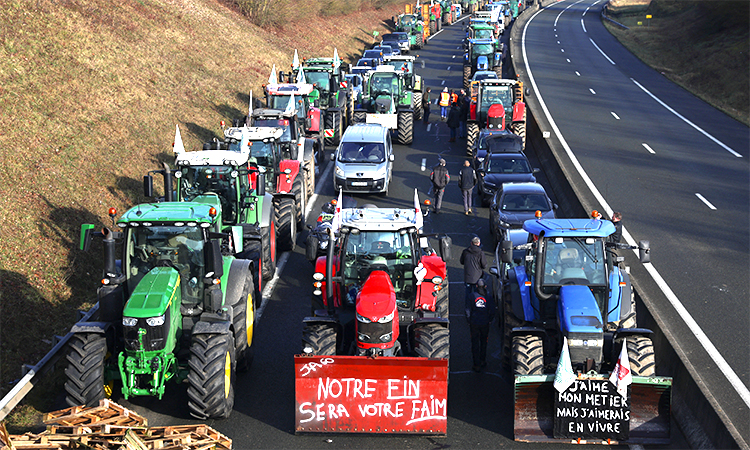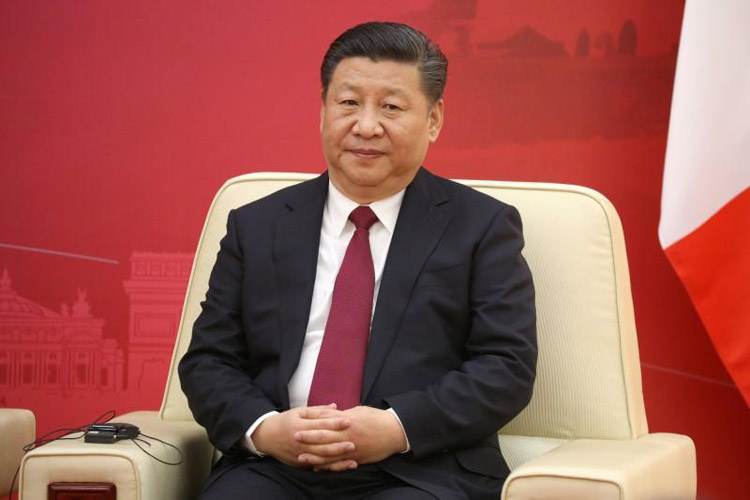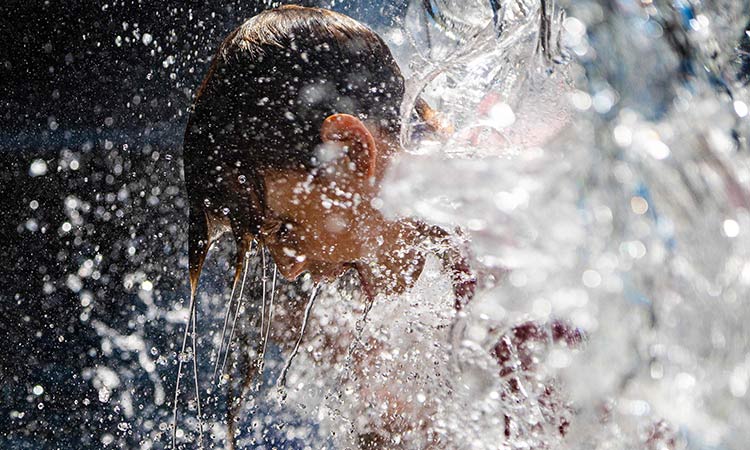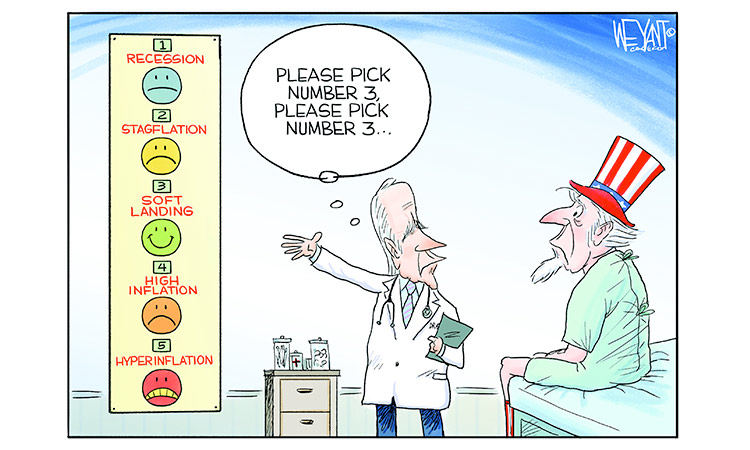Eco-anxiety is robbing kids of their childhoods
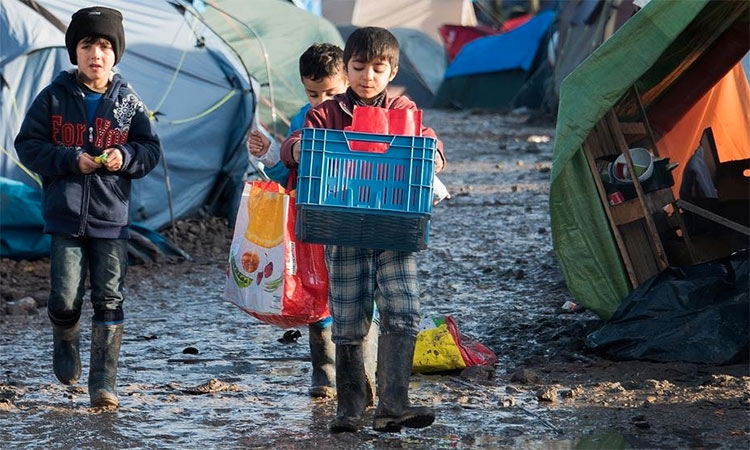
Children of Kurdish migrants walk through a mud-covered path at the Grande Synthe migrant camp near Dunkerque in northern France. AFP
Carol Chandler-Thompson, The Independent
“Is it OK to still have children?” That’s the question posed by US congresswoman Alexandria Ocasio-Cortez last year during an Instagram livestream, addressing one of the most contentious issues around climate change: procreation. Campaigns such as BirthStrike and Population Matters have popularised the conversation. Meanwhile births in the UK have decreased by 9.9 per cent since 2012.
This is the world our children are growing up in. A world that is contemplating whether it is ethical to raise children due to the impending threat of climate change. Children are bombarded with the devastation of flash floods, wildfires and droughts; they’re at the environmental protests, campaigning against deforestation and the mass extinction of species. They’re being told by Greta Thunberg that they’re not too small to make a difference while simultaneously fighting the feeling their actions are not enough.
Having just become a mother myself, I am aware of my responsibility in educating my daughter about climate change. However, I also ask myself, by doing so am I stealing her childhood? When I consider the growing trend of eco-anxiety, I fear I might be.
Psychotherapist and teaching fellow at the University of Bath, Caroline Hickman, revealed the Climate Psychology Alliance has been “inundated” with requests for support to deal with eco-anxiety. Particularly prevalent in young people, eco-anxiety is a rational response to the climate crisis; it’s an accumulation of feeling powerless in the face of an inevitability beyond our individual control. But how do we address it?
I believe we must start with schools. Education about climate change is imperative. Children need to be informed, now more than ever, about what climate change is and how their actions can make a difference. But so too must schools ensure the energy around combatting climate change is channelled in a healthy and constructive way. As teachers, we need to empower students to understand their own agency and highlight what they can do to make a positive change, no matter how big or small.
We must go beyond learning about the environmental crisis and highlight the good that people around the world are doing. Schools need to teach their pupils about the positive environmental news.
Discuss what the Ocean Cleanup project is doing to remove plastic waste from our oceans; highlight the mass global tree-planting schemes pledged by all political parties; and marvel at how the rise of cyclists in London hit an all-time high in 2018. We should be talking about the innovations that have emerged in the face of the climate crisis and the subjects or projects students can enroll on to pursue a career in these fields.
We need to be open about what eco-anxiety is and teach students that they are not alone in this feeling. By normalising the discussion, we can start proactively working towards making positive change, together, whether that’s choosing to reduce consumption of animal produce, opting to walk instead of being driven or buy less fast fashion. These actions alone will feel inadequate. These actions collectively will feel like they’re making an impact.
That’s why at Blackheath High School GDST we are celebrating our 140th anniversary this year by committing to 12 months of environmental pledges – 140 of them.
We’ll reduce the amount of waste the school produces, audit the use of single-use plastic and maximise opportunities for reuse and recycling. We’ll add the study of our oceans to the curriculum and get our students out into nature to teach them about how to protect it. And while this “year of promise” will take place in 2020, our aim is to create a longer lasting, more permanent behaviour change across the school community.
Climate change is frightening. We all have a role to play in protecting our planet. We cannot continue sheltering students from a crisis they are very much aware of. But, perhaps more importantly, we can’t let our children be consumed by eco-anxiety. Knowledge is power and schools have a responsibility to educate the next generation as to how they can make a positive difference. For the benefit of both our children and our planet.
